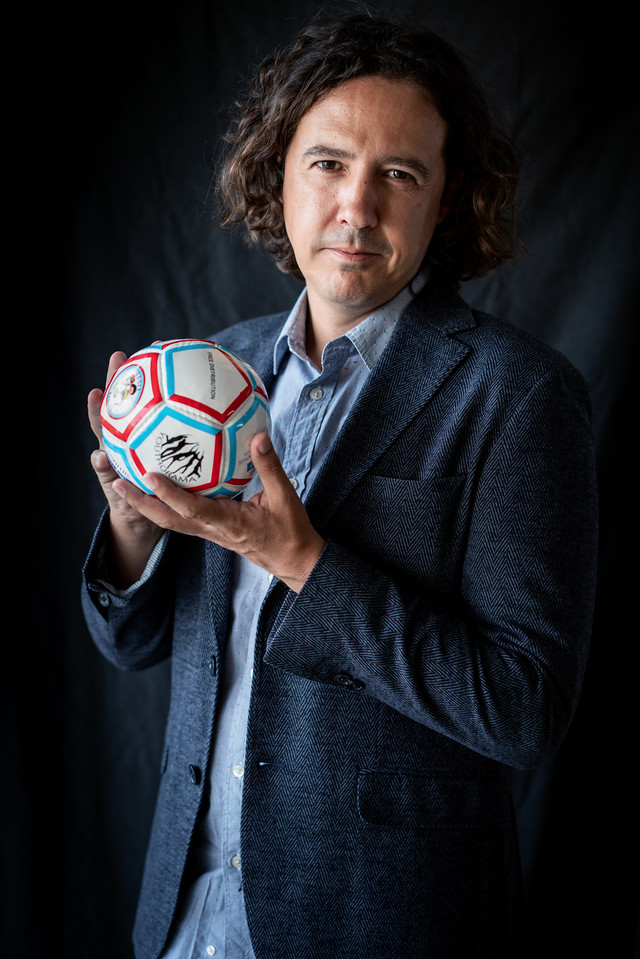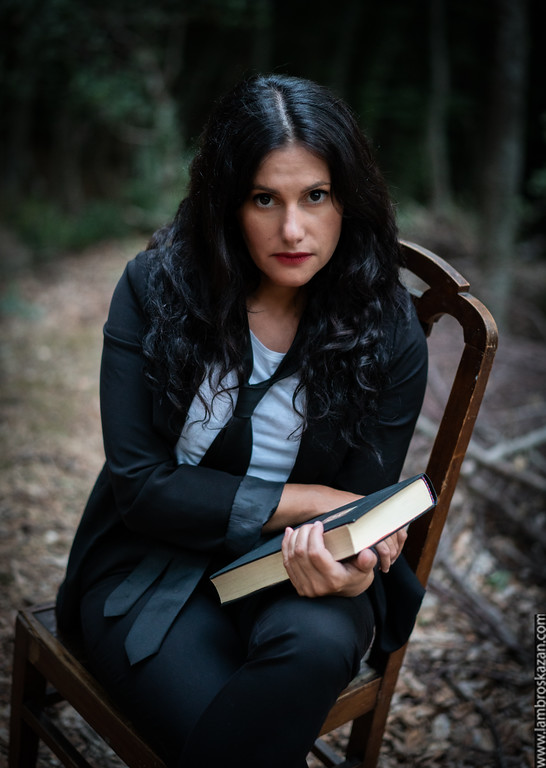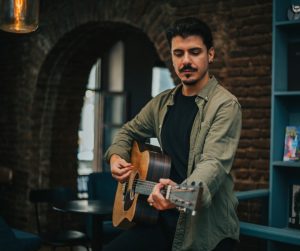
updates
Barbara Doumanidou – Elias Mastoras
Theatrical darkness + light of giving = love

They’re both artists, each in their own way. Barbara Doumanidou is rather more classic (if one could deem as classic her peculiarly dark theatrical work), whereas Elias Mastoras’ work is more reformative (the art of giving). If you search for common ground between these two individuals you’ll come across the obvious since they’re married to one another, yet there are other signs of closeness that aren’t so evident: each is supportive of the other’s work, complements it and – above all – admires it genuinely and wholeheartedly. They share not only love, but faith in each other’s work. Not as a familiar companion, but as an aesthetic partner…
Eight years ago, Barbara Doumanidou worked with Maria Rapti to create the “Theater of Erstwhile” and directed, for the first time in Greece, an interactive performance with elements of horror in an old motel. The audience’s feedback was so enthusiastic, the performance “Fear”, based on works by Edgar Allan Poe, was staged for three whole years in Thessaloniki’s emblematic Bensousan Han building.
The performance was followed by 14 more works: “The Lower World”, “The House of Bernarda Alba”, “The Blind Fly”, “Blood Wedding”, “The Red Lanterns”, “The Exorcism”, “The Murderess” and others, all of which created a unique and dark aesthetic in the theater art form.
«Our goal is always to activate the audience’s emotions,” Barbara states, “to bring the viewer out of his safety zone and include him in the story, make him experience each protagonist’s drama and feel each story as if he’s a part of it. The objective is to allow the primordial matters that govern us, such as love, death, life, to saturate his skin and enter his arteries, his blood, and delve deep into his soul. We want each of our performances to be an experience. We want to shock the audience and we are happy when we achieve that.”
Elias is a youth trainer, chess coach, international blind soccer referee and is in charge of the international campaign A Ball For All!, a project providing sound-making balls to blind children worldwide, free of charge. Elias thought of the campaign when he discovered that “in Greece there are more than 500 blind and vision-impaired children and they may feel socially excluded from a simple game with a ball.”
He got in touch with little Leandros, a young boy with impaired vision who read a short story during a presentation of a chess-related storybook written by Elias (he is a writer, too). “That’s when I realized that while blind adults can participate in sports, it isn’t the same for children. So I designed a special soccer ball which is lighter, it weighs 250 grams, whereas soccer balls weigh 550 grams, and has four built-in bells that make sounds. This ball gives the opportunity to blind children to play together with seeing children.”
But this wasn’t enough. An international campaign had to be created in order to make the ball known globally, along with a game guide that would reach people throughout the world.
«So, what we did on a global level was to invite any institution that could use the ball to send us an email with the school’s address and the number of vision-impaired children attending. We don’t ask for any personal data.” This is how the ball reached 99 countries in five continents.




